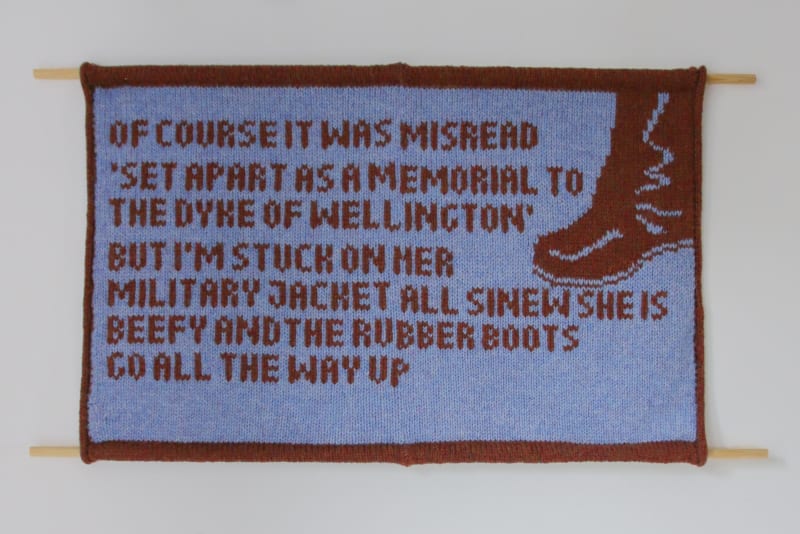Lydia Morrow is an artist, designer, and writer. She studied Painting and Printmaking at the Glasgow School of Art, graduating in 2017. She is currently working on her first long-form writing project, a magical-realist novel about a new mother struggling with regret.
Lydia’s practice focuses on the body as a gallery space, exploring the role of dress and decoration in feelings of embodiment. As a physically disabled, neurodivergent, queer fat person who is also a parent, she explores the experience of a body that is shared, legislated, and often works against her. Desire and pleasure intersect with the physical demands of parenting and the pain, limitation, and alternative world-building that can come with disability.
With her wall-based works, Lydia explores the role of the home as a site for disabled longing. Wool from specific Scottish mills is knitted and embroidered with lines of poetry, they become vocal and sensual. Her works are individuals that speak for themselves, and can also be an extension of her or the spaces they occupy, they are art, artefact, and actant.
Lydia seeks to examine not only the relationship between knitted objects the and people and spaces they clothe, but to the sheep, their spinners, their knitters, other objects, and the earth. While she works primarily through the medium of knitwear, her practice exists in a space where the distinctions between fine art, craft, writing and design are porous and largely irrelevant.
The piece ‘The Dyke of Wellington’ plays with Lydia’s love of misreading and how our yearning effects the stories we tell. An unreliable narrator, she confuses the letters of a military plaque, and leans in to the erotic and unattainable desire for a perfect remembrance of history. The piece is made from wool from New Lanark, a complicated space of colonial utopian ideas.

